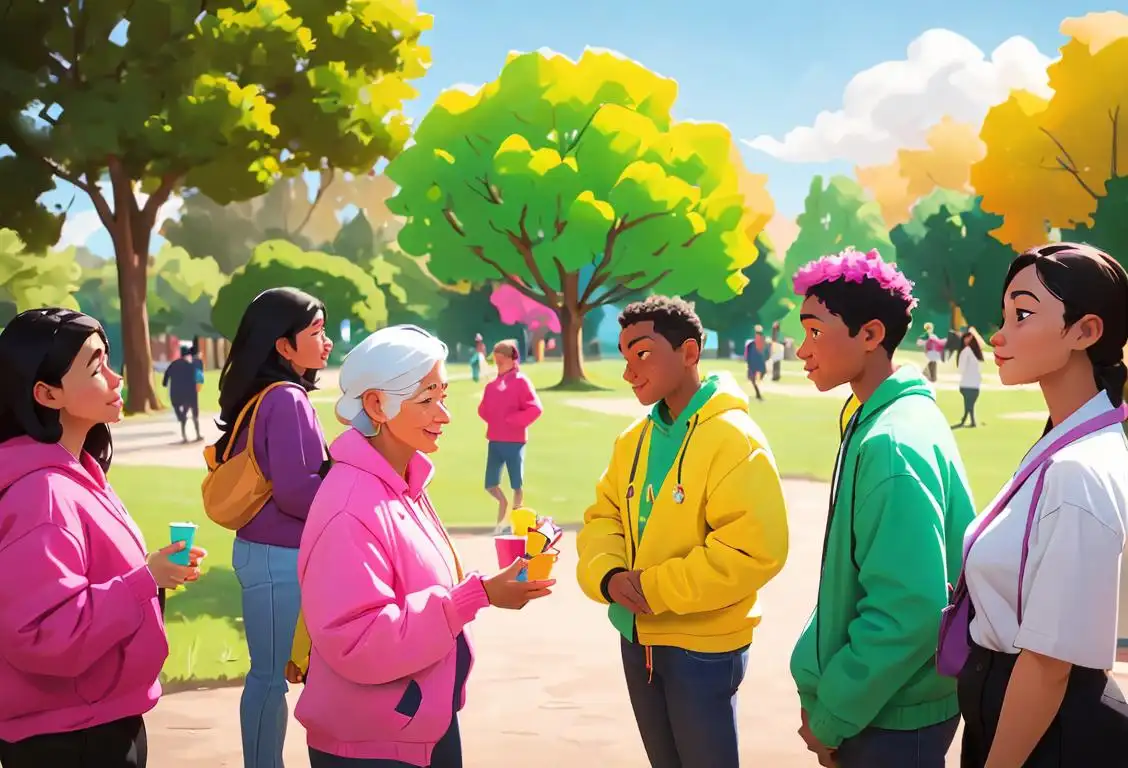National Social Prescribing Day

Hey there! Did you know that there's a special day dedicated to social prescribing? Well, it's true! National Social Prescribing Day is a time to celebrate the wonderful practice of using community activities and support to improve our overall well-being. So put on your social hat and let's dive into the world of social prescribing!
When is Social Prescribing Day?
It's national social prescribing day on the 12th March.
What is Social Prescribing?
Social prescribing is like a magical potion that combines healthcare and community support. Instead of just popping pills or going to the doctor's office, social prescribing encourages people to get involved in various activities that promote physical and mental well-being. Whether it's joining a local yoga class, volunteering at a charity, or even taking part in a book club, this approach recognizes that our social connections and engagement can be just as important as any medication.
On National Social Prescribing Day, health professionals, community organizations, and individuals come together to raise awareness about this fantastic practice. They share success stories, spread the word about available resources, and encourage others to give social prescribing a try.
How It All Began
The idea of social prescribing has been around for quite some time, but National Social Prescribing Day has gained significant recognition in recent years. It all started when a group of passionate advocates noticed that many people were missing out on the benefits of community support and connection. They saw that referring individuals to social activities and support groups could significantly improve their overall well-being.
And so, National Social Prescribing Day was born! It's a day to celebrate the power of human connection and the positive impact it can have on our health.
History behind the term 'Social Prescribing'
1990
Emergence of the concept
In 1990, a community health worker named Dr. Michael Dixon introduced the concept of 'social prescribing' in the United Kingdom. Dr. Dixon noticed that many patients were coming to him with complex health issues, often exacerbated by social factors such as loneliness, unemployment, and inadequate housing. He believed that conventional medical treatments alone were insufficient to address these underlying social determinants of health.
2005
Emergence of the term 'social prescribing'
The term 'social prescribing' first emerged in the United Kingdom in 2005. It describes a healthcare approach that involves prescribing non-medical interventions to improve well-being. At this time, there was a growing recognition that tackling complex health issues required more than just medical treatments, but also social and community support.
2010
Recognition by the National Health Service (NHS)
In 2010, the National Health Service (NHS) in the UK started to acknowledge the value of social prescribing as a means to address both physical and mental health issues. Social prescribing was seen as a way to complement traditional healthcare services and enhance overall patient care. This recognition helped to bring the concept of social prescribing into mainstream healthcare discussions.
2006
Formal recognition
In 2006, the concept of social prescribing was formally recognized and included in the United Kingdom government's Health and Social Care Act. This act aimed to enhance the partnership between health and social care services, acknowledging the importance of a holistic approach to healthcare. Social prescribing was seen as a way to bridge the gap between clinical and social interventions, empowering healthcare professionals to prescribe non-medical interventions to improve patients' well-being.
2011
National recognition and expansion
By 2011, social prescribing had gained national recognition in the United Kingdom. The Royal College of General Practitioners incorporated social prescribing into its curriculum, ensuring that healthcare professionals were aware of this approach and its potential benefits. Additionally, various projects were initiated across the country to pilot and evaluate the effectiveness of social prescribing, leading to its further expansion as an innovative healthcare practice.
2013
Research and evidence-building
By 2013, there was a growing interest in researching the effectiveness of social prescribing interventions. Studies were conducted to assess the impact of activities such as exercise, arts and crafts, gardening, and volunteering on individuals' well-being. These research efforts aimed to provide evidence-based support for social prescribing, further validating its potential as a holistic healthcare approach.
2016
Embedding social prescribing in policy
In 2016, social prescribing gained traction as the UK government recognized its potential impact on public health. Social prescribing was included in the government's strategy to address the social determinants of health, focusing on prevention and holistic approaches to well-being. This policy endorsement played a crucial role in integrating social prescribing into the broader healthcare system.
2019
World Health Organization endorsement
In 2019, the World Health Organization (WHO) recognized the value of social prescribing as a means to address social determinants of health worldwide. The WHO highlighted the positive impact social prescribing can have on mental health, social inclusion, and overall well-being. This endorsement further elevated social prescribing as a global healthcare approach, generating international interest and research into its implementation.
2020
Global adoption and response to the COVID-19 pandemic
In 2020, social prescribing experienced global attention as the COVID-19 pandemic highlighted the importance of social connections and well-being. With people facing increased levels of isolation and mental health challenges, social prescribing gained even more significance. Healthcare systems around the world began exploring and implementing social prescribing initiatives to support individuals in managing the effects of the pandemic.
Did you know?
Did you know that social prescribing has been linked to reduced hospital admissions and GP visits? It's true! By incorporating community engagement and support into healthcare, social prescribing aims to prevent health issues before they even arise. Talk about a proactive approach to wellness!Tagged
awareness community healthFirst identified
26th February 2020Most mentioned on
12th March 2020Total mentions
176Other days
Black Hiv Aids Awareness Day
Mast Cell Disease Awareness Day
Social Prescribing Day
Vitiligo Day
Breastcancer Action Day
American Diabetes Association Alert Day
Donate Your Hair Day
Bleeding Day
Prescription Drug Take Back Day
Ostomy Awareness Day







